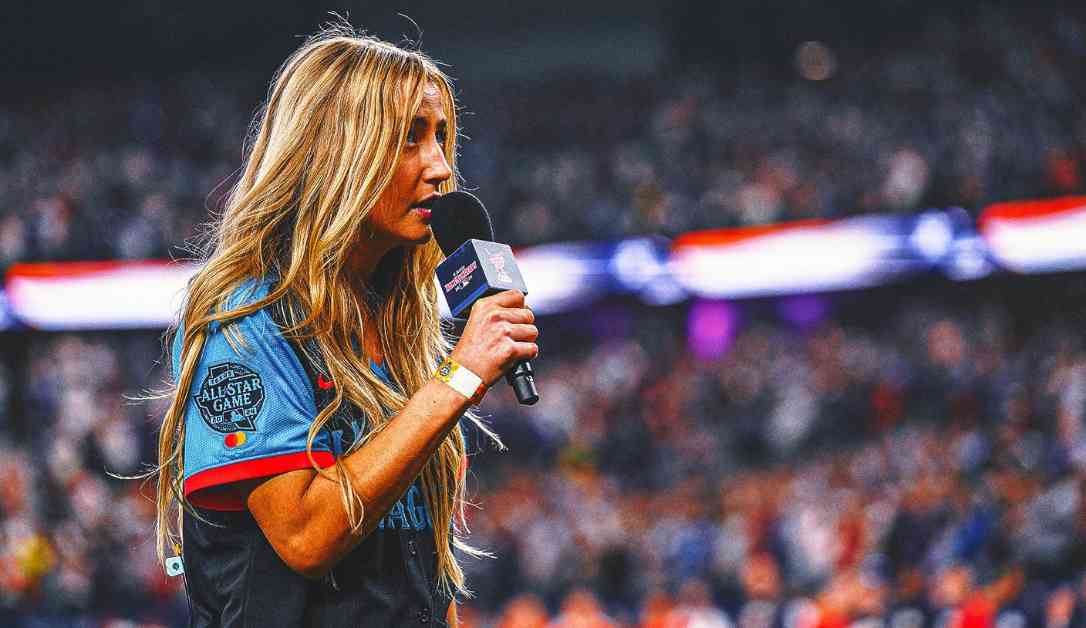Country singer Ingrid Andress made headlines after her performance of the U.S. national anthem at the MLB Home Run Derby received criticism. Andress admitted on social media that she was drunk during the performance and apologized to MLB, fans, and the country. She announced that she would be seeking help at a facility.
Andress, 32, started her career as a songwriter in Nashville before releasing her own music. Her debut album “Lady Like” included the hit single “More Hearts Than Mine,” which peaked at No. 30 on the Billboard Hot 100. In 2021, she released “Wishful Drinking,” a collaboration with Sam Hunt, which also gained popularity on country radio.
Following her performance, social media users and critics expressed their opinions. Some likened her rendition of the national anthem to “one of the worst” they had heard, while others made jokes about her performance style. Despite the backlash, Andress has not responded to the comments.
This incident is not the first time a national anthem performance has faced criticism. Past renditions by artists like Roseanne Barr and Fergie have also received negative reactions. Fergie, in particular, issued a statement after her performance at the 2018 NBA All-Star Game, acknowledging that her rendition did not go as planned.
In the world of sports, controversial renditions of the national anthem have sparked debate and discussion. Fans and critics often have strong opinions about how the anthem should be performed at events like the MLB Home Run Derby. Andress’s apology and decision to seek help have brought attention to the importance of mental health and well-being in the music industry.
As the story continues to unfold, it remains to be seen how Andress will move forward from this incident and what impact it will have on her career. Fans and observers will be watching to see how she addresses the situation and how it may shape her future performances and music releases. In the meantime, the conversation around national anthem performances at sports events continues to evolve, with artists and audiences navigating the challenges of honoring a beloved song in a public setting.








